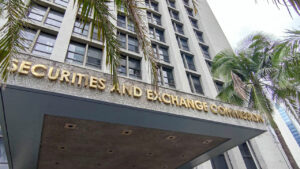Food inflation has risen to its highest level in 18 months, driven by sharp increases in the cost of chocolate, butter and eggs.
The British Retail Consortium (BRC) and NIQ’s Shop Price Monitor reported that food prices rose by 4.2 per cent in August, up from 3.5 per cent in July, marking the fastest pace of growth since February 2024.
Fresh food prices climbed to 4.1 per cent from 3.2 per cent the previous month, largely due to higher dairy costs, while ambient food inflation – covering packaged and long-life goods – slowed slightly to 4.2 per cent from 5.1 per cent.
Overall shop price inflation also picked up, rising to 0.9 per cent in August, despite non-food goods recording a price fall of 0.8 per cent.
Helen Dickinson, chief executive of the BRC, warned that the rise adds to the burden on households already squeezed by high living costs.
“Shop price inflation hit its highest rate since March last year, fuelled by food price rises. This adds pressure to families already grappling with the cost of living,” she said.
“Retailers continue doing everything they can to limit price rises for households, but as the Bank of England acknowledged, the £7bn in new costs flowing through from last year’s budget has created an uphill battle for retailers.”
Earlier this month, the Bank of England pointed to April’s rise in national insurance contributions as a factor pushing up food prices, alongside global supply chain challenges and volatile commodity markets.
More than 60 retail bosses – including leaders at Tesco, Sainsbury’s and Boots – wrote to Chancellor Rachel Reeves last week warning that further tax rises in the autumn budget would undermine efforts to ease living costs.
The letter, co-ordinated by the BRC, said executives now expect food and drink inflation to hit 6 per cent later this year unless pressures ease.
Mike Watkins, head of retailer and business insight at NIQ, said the recent uptick reflected a combination of factors:
“The uptick in prices reflects several factors: global supply costs, seasonal food inflation driven by weather conditions, the conclusion of promotional activity linked to recent sporting events, and a rise in underlying operational costs. As shoppers return from their summer holidays, many may need to reassess household budgets in response to rising household bills.”
Although retailers continue to expand price-matching and discounting initiatives to help households, sector leaders warn that costs stemming from government tax policy, energy bills and wage increases are making it harder to hold back inflationary pressures.
For families already adjusting to rising bills, the latest figures suggest food shopping will remain one of the most acute pinch points of the cost-of-living crisis as the UK heads into autumn.


















